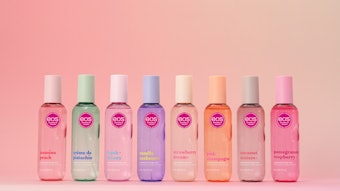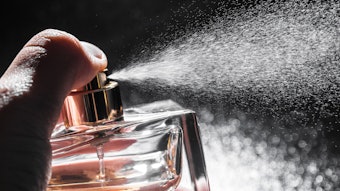- Success depends on the success of clients.
- Solutions must be provided at every level.
- Involving key individuals in leadership and decision-making not only makes teams stronger and self-reliant, but also generates positive momentum, improves business outcomes and creates extraordinary efficiencies.
- One of the responsibilities of leadership is to ask questions.
Wherever I travel, I’m asked: “How do you find time to fit in everything you do? How do you lead your people, manage your company and, at the same time, serve on industry committees?” I have one answer: Doing all these things is the same job. In our business, success depends on the success of our clients. Any time I am serving my clients’ interests, I am doing the right job, no matter what that job is.
Balancing these responsibilities is important, but putting a priority on one task over another is impossible. Not only is everything we do for our clients important, but clients have multiple objectives. It’s natural for them to want all their objectives met now, rather than later. Since they have chosen us to be a creative partner in providing fragrance solutions, we must also provide solutions at every level—creative, marketing, technology, safety, regulatory, quality, sustainability … and on.
Clearly, our perfumers, evaluators, application scientists and marketing experts address these factors, as do our regulatory affairs people, and challenging industry-wide issues are tackled in industry meetings. All are critical and cannot be ignored. But what really helps our teams provide leadership for our clients is that we believe in the concept of opportunity.
There is always opportunity to be developed in any business situation—to be first, to be innovative, to be competitive, to be cost-effective. If you believe that opportunity exists, you will you find it fast and you will lead your client directly to it. That’s always our goal. This philosophy guides everything we do—as fragrance creators, as a company, and as an active participant in industry affairs.
Fragrance Leadership
Winning fragrances are at the heart of our existence. Without a winning fragrance, a company’s ability to succeed in the marketplace is greatly diminished. As creators of fragrances, we never assume that scent plays a minor supporting role in the life of a brand.
We have seen example after example where the consumer’s belief in the critical efficacy of a product is dramatically enhanced by the right fragrance—and reduced by an alternative. The right fragrance reinforces efficacy and elevates all the positive attributes of a brand. Fragrance is a marketing multiplier. Today, our clients expect us, as a fragrance-maker, to contribute to the brand’s overall success.
To achieve that, we know that participating in the brand’s sensory strategy moves everything forward faster. Becoming involved in strategic decisions is a major leadership objective for our teams. Understanding the brand’s consumer profile and competitive positioning helps us streamline fragrance development, push the envelope creatively and fast track the creation of winning solutions.
We also know from experience that fragrance innovation isn’t a function of the number of people assigned to the task. Innovation comes from smart people who have great ideas. If you have smart people, you will invent great ideas.
Our natural fruit essences, for example, established a new standard for true fruit fragrances. These were developed by our own perfumers working in partnership with a small entrepreneurial firm in Atlanta. Our new DeoEssence fragrances reconfigure malodors and leave behind a fresh, natural ambience, while routinely outperforming the consumer brand leader in side-by-side testing. This innovation was developed in our laboratories by our highly experienced science and technology team. Interestingly, our ingredient buyers and quality control and certification team found a way for us to achieve extraordinary creativity and versatility in 100% organic fragrances.
As we develop these initiatives, we aren’t thinking about ourselves. We are focused on developing sustainable competitive advantages for our clients’ brands. That’s our primary motivation. When we achieve that, we are winning.
Organizational Leadership
As everyone knows, businesses are confronting enormous pressures in today’s economy. In beauty, manufacturers aren’t just dealing with the power of retailers—they are responding to consumers who want more choices and greater authenticity in natural, organic and sustainable products.
Also, industry-wide sustainability initiatives are putting pressure on raw materials pricing and ingredient sourcing. Regulatory issues continue to challenge responsible marketers in the U.S., the European Union and around the world. And because multiple ingredients are involved—both naturals and man-made molecules—fragrance has become an integral part of this changing environment and a regulatory target.
Just as anything that touches our clients touches us, we cannot ignore these factors. As a company, we must respond, and as a company is how we respond. To provide leadership for our clients, we are applying more resources, more expertise and more knowledge to our business than ever before in our history.
Part of this is the natural, ongoing expansion of our core competencies—including fragrance design, marketing, quality and safety. A concept that we call “living change” is also at work. As a competitive organization, we must never remain static. We must keep moving and continuing to evolve. If we stop, you are in trouble. Maintaining forward momentum keeps us ahead of the issues and aiming high.
But by far the biggest factor in company leadership is our people and the way we encourage people to work.
The integration of perfume creators, evaluators and scientists is a long-established industry norm. In today’s world, we need more. Today’s fragrance team must include marketing experts who know consumer trends and how to compete in the marketplace; quality control and certification professionals who protect raw materials and ensure we comply with industry requirements; plus regulatory experts who are fully aware—and informed—about global rules that are changing constantly.
These experts are involved in every aspect of our work, and work together, in real time, on all projects.
Building teams that work this way is something we have achieved through planning, training and recruitment. We made the decision to expand leadership throughout our organization more than a decade ago. Recently, we added new capability and new executive leadership. Our clients take advantage of this evolution, and they have thanked us. This is where teams deliver. With strong teams, we have a resource that is always client-focused and accountable. Involving key individuals in leadership and decision-making not only makes these teams stronger and self-reliant, but also generates positive momentum, improves business outcomes and creates extraordinary efficiencies.
Looking at our expansion throughout the past five years, I know that perfecting our internal structures and encouraging multiple team relationships has dramatically grown our company and our business.
Industry Leadership
One of the responsibilities of leadership is to ask questions. Unless we ask questions, we never know where opportunity exists. Asking the right questions is how we manage virtually everything we do in perfumery and evaluation, as well as in our laboratories and production facilities. We use the same discipline in our approach to industry initiatives.
Making sure that the right questions are asked and key topics addressed helps us participate constructively in fragrance organizations such as the Fragrance Materials Association of the U.S. (FMA), the International Fragrance Association (IFRA) and the Research Institute for Fragrance Materials (RIFM)—as well as manufacturing organizations such as the Consumer Specialty Product Association (CSPA), the Soap and Detergent Association (SDA) and the National Candle Association (NCA).
To ask the right questions, of course, we must know the details. Our involvement in every aspect of fragrance creation and application has made us very informed about industry issues. We represent a fragrance, a product component that is made with scores of ingredients, including natural and man-made materials, and this puts our industry squarely on the front lines of product quality, safety and sustainability issues. No responsible fragrance-maker can ignore these topics. Not only do they affect our clients, but they affect our ability to creatively develop and produce exciting scents. Fragrance may be our livelihood, but today some hard-core critics are saying there is no reason for us to exist.
How should an industry respond to criticism like this? In our view, very seriously. Leadership starts with working together as an industry—and in association with sister organizations, such as CSPA and SDA. It means confronting alarmist propaganda with real science. It means providing solid information that journalists can use for balance and perspective. It means working with legislators and regulators, as well as those in nongovernmental organizations who may be promoting initiatives that to us seem aggressive and threatening.
But it does not mean fighting fire with fire. As industry participants, we believe that fighting is an extremely counter-productive response. We promote engagement—but not battle. Constructive dialog can always achieve more. If we are serious about working together, our industry can provide enormous leadership and be extraordinarily effective.
On virtually any issue that arises, we can trust in the power of scientifically valid data; proven perspectives based on years of experience; best practices that reflect the integrity of our industry; as well as definitive research conducted throughout the years by independent scientists. But this knowledge must continue to be gathered and shared.
That is why FMA, IFRA and RIFM demand our support. To benefit from what our industry achieves—but without financially supporting our initiatives—is somewhat unfair. We are all involved. Customer-focused companies and their leaders all must engage in addressing these issues.
Again, everything we do is about our ability to serve our clients. If we are successful for our clients, we have achieved total success. That is what my job is about. That is what leadership means to me.
Steve Tanner is the president of Arylessence. Unlike some of his peers in the fragrance industry, his career did not begin in a fragrance laboratory or in the R&D department of a beauty and cosmetics manufacturer—his first leadership role was as an officer in the U.S. Army. “The Army is very good at giving young people leadership responsibility,” says Tanner. “What they need from you is technical and tactical proficiency. If you understand the critical details of the situation and have a vision of what to do next, the Army is confident your training will help you lead your people.” Taking over the Arylessence helm from his late brother and company founder Lee Tanner, Steve has employed his leadership skills to build the Atlanta-based firm into a serious fragrance player with a creative reputation, marketing expertise and a diverse client base. He also plays a significant role in industry affairs—serving on the boards of FMA, IFRA, RIFM and CSPA.










